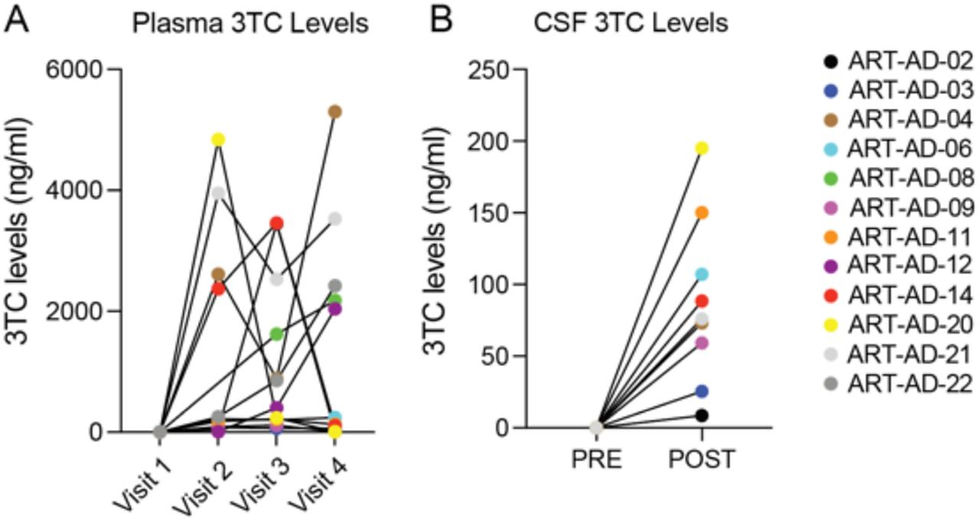We are excited to announce the results of our AntiRetroviral Therapy for Alzheimer’s Disease (ART-AD) clinical trial!
- Feb 28, 2024
- 2 min read
This is a preprint that has not yet been reviewed: medrxiv.org/content/10.110...
While our results are promising, this is a small trial lacking a placebo control. The study drug (3TC, aka lamivudine) would need to be tested in a large cohort of individuals and compared to a placebo control before we will know if it is an effective therapy for Alzheimer’s disease.
ART-AD was an open-label phase 2 clinical trial testing the effects of 3TC in individuals with mild cognitive impairment due to suspected Alzheimer’s disease. 3TC is a nucleoside analog reverse transcriptase inhibitor that was originally approved for HIV in the 90’s. While I will go into more detail below, the take-home message is that we detect significant improvement of some biomarkers of neurodegeneration and neuroinflammation in participants after 24 weeks of treatment with 3TC despite our relatively small sample size.
The tau protein accumulates in brains of individuals with Alzheimer’s disease as well as a group of other neurodegenerative disorders (ex: progressive supranuclear palsy (PSP), some frontotemporal dementias) that are collectively termed “tauopathies.” Previous work in laboratory models of Alzheimer’s disease and related tauopathies indicate that 3TC effectively reduces neurodegeneration through its ability to tamp down the activation of transposable elements.
Transposable elements are segments of DNA that are similar to viral DNA, except that they are a normal part of our genome. Work from several labs indicates that pathogenic forms of tau can activate transposable elements, and that such activation drives neuroinflammation and neurodegeneration. We find significant reduction in levels of GFAP, a marker of astrocyte reactivity, in cerebrospinal fluid of participants after 24 weeks of 3TC treatment. GFAP is elevated in blood and cerebrospinal fluid of patients with Alzheimer’s disease and is associated with decline in cognitive function. We previously found that transposable element-encoded double stranded RNA (which looks like viral RNA to the cell) accumulates in astrocytes in Alzheimer’s disease and PSP, and that tau-induced retrotransposon activation causes neuroinflammation:


Comments